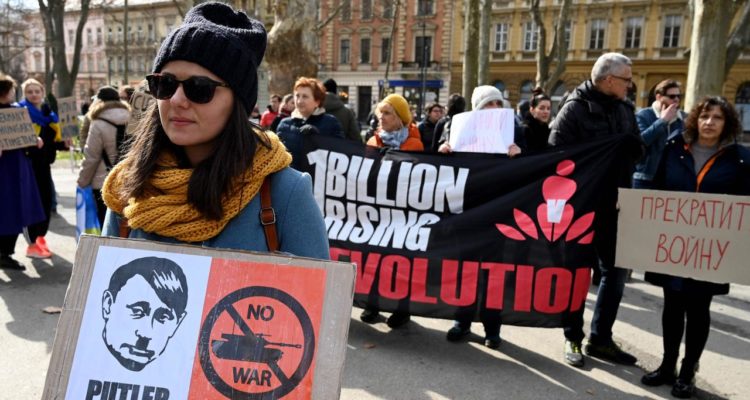The Holocaust survivor poured himself a cup of Chivas Regal, toasted life, friendship and peace, then knocked it back in one.
“Its part of my recipe for longevity,” said Igor Davidovich, 90, with a smile. “Another one perhaps?” Then the air raid sirens began.
The last time Davidovich’s city was attacked was in 1941 when the Nazis bombed and captured Dnipro, in eastern Ukraine. He was nine. Later, he and his mother and younger brother fled to the Urals aboard a train as the Einsatzgruppe D death squad reduced the population of Jews who had not escaped the city from 30,000 to 702 in a four-day murder spree. His father, a Polish Jew and communist, had been murdered in 1937 on trumped-up spying charges as part of Stalin’s purge.
“I last heard those sirens a long, long time ago,” Davidovich said. “I could never in my life have imagined that I would hear them again. It grieves me to hear that sound repeated in my ears now.”
This time, he is not for leaving. The war is quite different and Vladimir Putin is no anti-Semite. Yet carnage is visited across Ukraine and air raid sirens sound over European cities, forcing thousands of civilians to run for cover in underground shelters, Holocaust survivors and the newer generation of the country’s thriving Jewish population alike are outraged the Kremlin is using allegations of neo-Nazism to justify an attack on a country whose president is of Jewish origin.
Read the article by Anthony Loyd in The Australian (from The Times).

